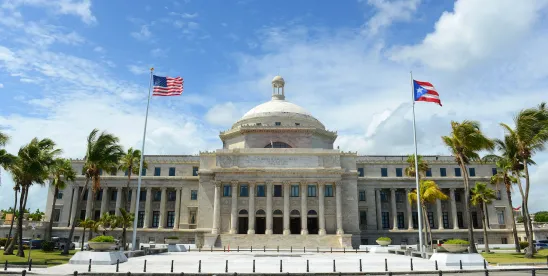Legislative Action and Pentagon Visit Coincide
On September 8, 2025, the Puerto Rico Senate approved Resolution 288, formally endorsing the actions of the President of the United States and his Cabinet against Venezuelan President Nicolás Maduro. The resolution, introduced by Puerto Rico Senate President Thomas Rivera Schatz on September 5 and first reported by Indiario, pledges Puerto Rico’s resources to support federal counter-narcotics and security operations.
The vote took place the same day that U.S. Defense Secretary Pete Hegseth and Joint Chiefs Chairman Gen. Dan Caine arrived in Puerto Rico, underscoring the Island’s growing role in U.S. military posture as tensions with Venezuela rise.
Pentagon Engagement in the Caribbean
During remarks aboard the USS Iwo Jima, Secretary Hegseth told sailors “this isn’t training”, confirming that the current mission is a live counter-narcotics operation. Ten F-35 fighter jets have been deployed to a Puerto Rico airfield in support of operations targeting trafficking networks allegedly tied to Maduro.
These measures follow a controversial U.S. strike on a Venezuelan-linked vessel. Reuters reporting noted that Venezuela has responded by boosting troop deployments, raising concerns about escalation and oversight.
Resolution 288: Substance and Significance
Resolution 288 condemns Maduro’s regime as illegitimate and complicit in transnational drug trafficking, reaffirms Puerto Rico’s support for U.S. policy, and directs that the measure be delivered to the President, Cabinet members, and Congress.
For Puerto Rico, this represents not only solidarity with federal counter-narcotics policy but also a local policy shift. Under Rivera Schatz’s leadership, the Senate has positioned itself as a willing partner in U.S. defense and security strategy.
Industry Perspective and Act 60 Opportunities
Local defense industry stakeholders have urged the government to take advantage of the moment, noting that “the government should put together a task force of DoD contractors, retired military, and such on the Island to assist federal U.S. Government planning to promote Puerto Rico’s placement.”
Puerto Rico has seen a rise in defense contractors establishing operations under the tax incentives of Act 60, which offers favorable treatment to firms engaged in federal contracting. Resolution 288 and Pentagon engagement may accelerate opportunities for these entities, strengthening the Island’s role as both a strategic and economic partner.
Legal and Policy Implications
For policymakers and counsel, the resolution raises key questions:
- Federal–Territorial Coordination: Puerto Rico’s commitment to provide resources invites new legal questions about the mechanisms for integrating territorial authorities into federal defense and law enforcement.
- Oversight and Accountability: Expanded U.S. operations in the Caribbean are likely to trigger congressional review under the War Powers Resolution and international law standards.
- Precedent for Territorial Engagement: Puerto Rico’s proactive stance could set precedent for greater territorial involvement in U.S. national security policy, with implications for federal funding and constitutional interpretation.
Key Takeaways
- The Puerto Rico Senate has formally aligned itself with U.S. counter-narcotics strategy against the Maduro regime.
- Legislative approval occurred the same day as a Pentagon visit, highlighting coordination and visibility at the federal level.
- Defense industry stakeholders are calling for a task force to organize local contractors and retired military personnel to capitalize on opportunities.
- Act 60 continues to draw defense contractors to Puerto Rico, positioning the Island as both a security hub and an economic partner.
Disclaimer: This article is provided for informational purposes only and does not constitute legal advice.



 />i
/>i

